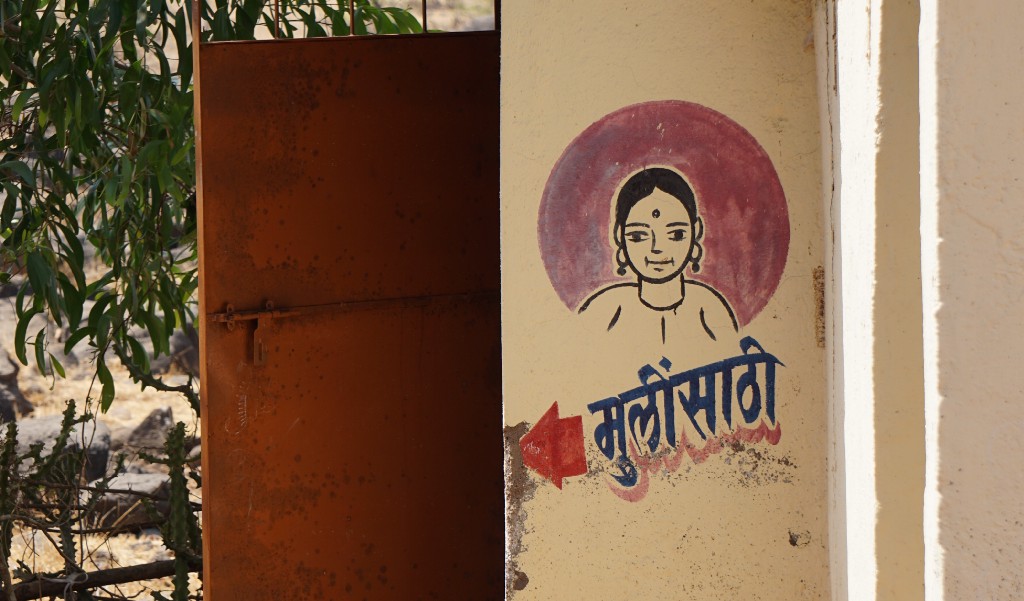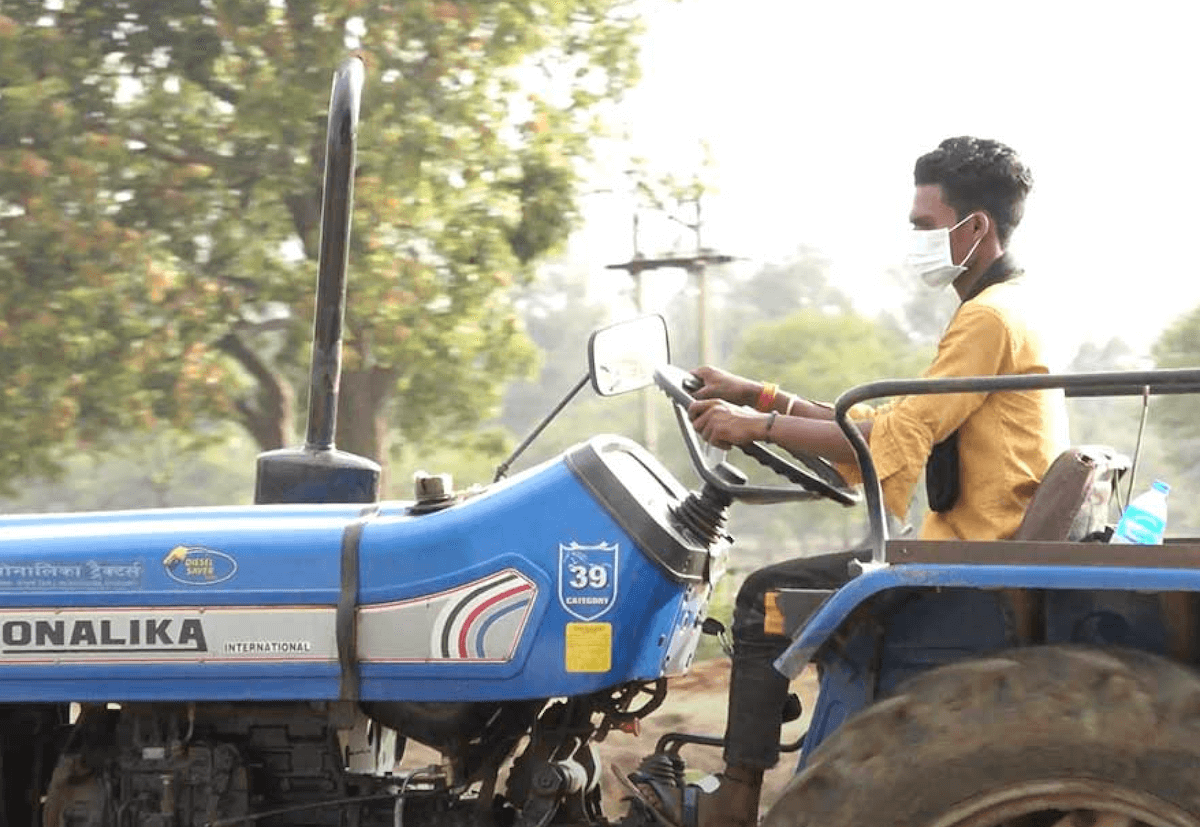In their “locker-room conversations,” women entrepreneurs in India share stories about how, at meetings with their male counterparts, they are assumed to be second-in-command and not taken seriously.
But Mayukhini Pande, a 32-year-old entrepreneur in Bangalore, told me she’s also hearing stories of male and female cofounders working together to correct such mistakes. Pande and her male co-founder, she says, “have found ways to manage this together.”

India has a thriving startup scene, with as many as 800 new companies a year receiving an increasing amount of investment dollars. Yet the country’s entrepreneurial ecosystem is considered one of the world’s worst for women. Less than 10% of Indian startups are led by women, according to the Saha Fund, the first fund devoted to investing in female founders in India. And it’s not getting better: a survey by KStart, found women led just 3 percent of Indian startups funded in the first two quarters of 2016.
That makes the experiences of women founders who have defied the odds all the more important. In conversations in person, by phone and via email, four women who created companies in India, ranging from menstrual educational tools to a women-centric bank, shared their lessons learned.
“It’s always the fight within! I work with women, and it’s a challenge to make them believe in themselves,” Chetna Sinha, a veteran of the women’s movements of the 1980s who in 1996 founded Mann Deshi Bank, told me. As for herself, “I had to make sure I was better informed, more up to date, just because I was expected not to know much about finance.”
The novelty of a female founder can be an advantage, especially in a provocative, mission-driven businsess, said Aditi Gupta, founder of Menstrupedia. “There is so much less expected from women entrepreneurs that if you do anything, you are in the news!” Gupta told me. “Of course, it’s sexist but use it to your advantage.”
There’s another advantage not available to the 650 million women in India, but perhaps is to women among the 30 million non-resident Indians and persons of Indian origin (known as NRI-PIOs), the world’s largest diaspora.
“In the Indian ecosystem, I think being a foreigner is an advantage and that trumps being a man or woman,” said Anu Sridharan, founder of NextDrop Technologies, a marketplace that connects water sellers and buyers. “It helps you tap into multiple resources across continents to help your vision come true.”
Here are excerpts of my conversations with four women founders of companies in India.

Mayukhini Pande, 32 years old, lives in India’s startup capital, Bangalore. She’s a co-founder of Greenopia Technologies, which sells kits that enable users to monitor houseplants with their smartphones. She launched Greenopia in 2015 with $16,000 raised through crowdfunding.
ImpactAlpha: Is it harder or easier as a woman in the startup ecosystem?
Pande: I don’t find myself thinking about it on an everyday basis. But there are days that make it hard to ignore the gender quotient in the equation.
Many fellow women entrepreneurs, in their ‘locker-room’ conversation, will tell you how, when they go to meetings with their male counterparts, they are naturally assumed to be second-in-command or not taken seriously enough. The good news is that the discourse is changing. It is coming to be seen as not a men-versus-women problem but a need to take collective stance against patriarchy.
I’m hearing stories of male and female cofounders working together to correct such assumptions wherever they encounter them, and my own co-founder, Mani and I have found ways to manage this together.
The bad news is that patriarchy is a tough bug. It manifests in subtle forms. The very image of a sexy start-up is one that is aggressive rather than patient, disruptive rather than sustainable — a value system that smacks of stereotypical masculinity. And I’m not very convinced yet that that is the only way in which you can build a business that impacts lives positively.
Q. As someone who chose crowdfunding instead of investors in the early days, what would you change about the fundraising process?
A. Fundraising, traditionally, has an ‘old-boys-club’ dynamic. At some level it is human to do so because you can trust a founder better if she or he is one of your kind or went to the same school.
But if you do not belong to one of the elite clubs, and especially if you are very early stage, the platforms for you to raise funding become limited. In the West, there are more platforms that have a credible history, while in India these are fewer and less established. Being a designer, I’d personally love to see the design community entering into funding networks, since design can be a game-changer in businesses, especially consumer businesses, but unfortunately not too many funds understand how.
Q. Do you collaborate with other women-led organizations in India? Do you belong to a support community?
A. Yes. I was one of the top 10 women entrepreneurs in 2016 from Women Entrepreneurship Quest, organized by Anita Borg Institute (ABI), which is one of the leading organizations for women in technology. Being an ABI fellow has helped me connect with some of the most inspiring women entrepreneurs in India who actively support each other.
Q. What’s the best advice you’ve received to date?
A. There is this Medium article, interestingly by two women entrepreneurs, titled Beware of Startup Prostitution. It describes how start-ups tend to get mired in vanity metrics, performing shows after shows in various conferences, winning awards, but losing sight of business. It has a beautiful line, “$1 from a customer is worth $10 from an investor.”

Anu Sridharan is a Californian who landed in Bangalore five years ago as a recent graduate of the University of California Berkeley. She became CEO of NextDrop Technologies, a marketplace that connects water sellers and buyers and relaunched the company this year. As a 29-year-old American woman living in India, Sridharan has an outsider’s perspective on India’s startup scene.
ImpactAlpha: What is the hardest problem that you’ve had to solve as an entrepreneur?
Sridharan. Staying alive. Solving problems before they take you down.
Q. How has fundraising been? Obstacles, frustrating conversations?
A. I think it’s been quite fair. We’ve got money when I thought we deserved it and I haven’t got money when we didn’t.
Q. Is it harder or easier as a woman in the startup ecosystem?
A. In the Indian ecosystem, I think being a foreigner is an advantage and that trumps being a man or woman. It helps you tap into multiple resources across continents to help your vision come true. For instance, we were just able to tap into Y Combinator, which a local startup would not have access to.
Q. What would you change about the impact sector?
A. Take more risks. The impact sector is ironically very risk averse.
Q. What would you change about the fundraising process?
A. I don’t try and raise money from the impact sector at all. I focus on people and funds who want to back crazy ideas that have the potential to really make a 10x improvement in the world we see today. I would also wish I knew exactly when I should start fundraising. Sometimes I feel like it’s too early, or it’s too late.
Q. Do you collaborate with other women-led organizations in India? Do you belong to a support community?
A. Informally, yes. I think it really does help more because it’s nice to just vent about life and work with people who can understand you.

Chetna Sinha is a 57-year-old native of Mumbai now living in Mhaswad, a six-hour drive south of the city. After being involved in women’s movements, in 1996 she founded Mann Deshi Bank, run by and for women.
ImpactAlpha: What is the hardest problem that you’ve had to solve as an entrepreneur?
A. It’s always the fight within! I work with women, and it’s a challenge to make them believe in themselves. They face enormous cultural constraints — within their families, communities, and it’s deeply embedded in their own sense of self.
I remember when we were at a meeting and asking women what would they do if they have some money. The men, a little while earlier, had said they would buy a two-wheeler or go eat a great meal, and all the women were saying they would educate their children or improve their home. And I told them what their men said, and they replied, we don’t have the luxury to dream for ourselves. So that’s a real issue we face.
Q. Is it harder or easier as a woman in the startup ecosystem?
A. Women have very little support from their own families and their in-laws, and they have to work doubly hard to prove themselves. Like I had to do when I was setting up our bank. I had to make sure I was better informed, more up to date, just because I was expected not to know much about finance.
Even our own bank, because women don’t have collateral, wants husbands to be co-borrowers for larger loans. And then if the woman’s business is very successful, there’s always the danger that her husband will see it as lucrative and then take it over. So even from the investor point of view, it’s a risk to invest in the woman, because of her context. And all this takes energy and also takes away from the actual work of running and expanding your business. And these are not challenges men have to face.
Q. What would you change about the impact sector?
A. One thing that has struck me is how much of a double burden women — especially poor women — bear. Microfinance institutions focus on women since they make better bets. But MFIs don’t just expect women to pay back and be better investments, but to further invest in their children and families and improve household income and standards of living. Which most of them do of course, but most controls — cultural/societal controls — still rest in the hands of men. Women have to be good businesswomen to earn good profits for investors in MFIs and banks and good householders by improving social indicators for their families. It’s an enormous burden.
Then there’s this huge push for measurement, and again women face the brunt of this. Where are men in all this? That’s something that bothers me. There must be a huge push for increasing women’s safety, for increasing their control over finance and assets — a real support system that puts property and technology in their hands, for instance, so that power dynamics in society can also change. So all these issues must also be part of this gender shift. And all this must lead to more mobility and access for women.
A lady I met once asked me — you are providing doorstep banking, doorstep financial literacy. Are you decreasing women’s mobility? It was an important question and made me think. Because mobility is crucial.
Q. Do you collaborate with other women-led organizations in India? Do you belong to a support community?
A. We are part of a large community network: Ashoka, Schwab, FICCI, Tie, Federation of Cooperative Banks, to name a few. Not specific women-led organizations, but focused on social impact.
Q. What’s the best advice you’ve received?
A. From two people whom I have been inspired by. The first is Ela, who is the Founder of SEWA. She encouraged me to set up Mann Deshi Bank. She told me, as you get successful, many intelligent people will come to you. Don’t get enamoured by all the [Indian Institutes of Technology] and [Indian Institutes of Management]. They are not going to provide the solutions. They will help manage your organization. But solutions will always come from women.
The second was by Sharad Joshi who led a popular farmer’s movement, and I worked with him. He said something similar. He told me don’t be swayed by all the jargon and fashionable global talk. Decide your own agenda and always stay local. Build your agenda based on the community. I always remember their words.

Aditi Gupta, 33 years old, started Menstrupedia, a company that makes tools for educating girls and boys about menstruation. Based in Ahmedabad, Gujarat, Gupta says that crowdfunding and support from men and women across India has sustained her company for the past five years.
ImpactAlpha. What is the hardest problem that you’ve had to solve as an entrepreneur?
Gupta. When we set out to create an awareness tool on menstruation, this affected everyone — the taboo around menstruation. Women seeing their bodies are impure, which leads to reproductive health issues. We are discriminating against our girls in our home. As a designer, we were able to create a great tool but as an entrepreneur when we set out to make the initiative sustainable, we always got feedback from business experts that an initiative like this would fail. Nobody in India is going to buy a book on menstruation, they would say. But we’re now in our fifth year, and we’re not just surviving, but thriving. I think Menstrupedia will be around for another 50 years. We crowdfunded, and since then have not taken any VC funding. It’s generated enough revenue on its own.
Q. How has your fundraising journey been?
A. Imagine pitching this product in front of investors who have no idea about this product, who have not spoken to their girls about menstruation. They don’t even know what their daughters, wives, and sisters might be having. So we clearly understood that a business expert would not help us. We focused on the feedback of our user. As a group of designers creating this, we were told that we needed to have someone with a business background on our team. But I think that designers know their user and customer best.
This started as a design project in school. Initially, we had a website when we set out to crowdfund for it. When we started the crowdfunding process, we were laughed at. We were told by experts that something like this would not be sold in India. Yet, people were loving the concept. We have not done any marketing to date. Whatever reach we have, which is about 90 schools using our books, it’s happened because of word of mouth. In 2013, we wanted to raise 4 lakhs ($8,000), and we ended up raising 5 lakhs ($10,000). We sold the books before they were made.
Q. Do you feel that it’s harder or easier as a woman in the startup ecosystem?
A. Yes gender inequality is there and the startup ecosystem reflects it. But me being a woman entrepreneur has always worked in my favor. I see it as an opportunity than a limitation. People will relate more to a woman, particularly for our kind of product. When you work on a topic that is taboo, it is a lot about advocacy and then doing your business.
Also there is so much less expected from women entrepreneurs that if you do anything, you are in the news! We didn’t spend any money on ads. Anybody who would make a list of women entrepreneurs in India, I would be there. Anybody who learned about the company would write about it. Of course, it’s sexist but use it to your advantage.
People also expect you to fail as a woman. So you can be a total failure, and it doesn’t matter. In the meanwhile, you can be working in your office building a great product.
I also know that as a woman entrepreneur, I would be able to create a more family-friendly workplace. I can totally raise a child and do my business at the same time. So it makes me happy that I built a company that is woman-friendly. They can take rest on the first day of their period, if they’re having cramps, or they can take time off to take care of their child.
ImpactAlpha’s Women Rising in India series showcases people and projects that are advancing the global Sustainable Development Goals.











